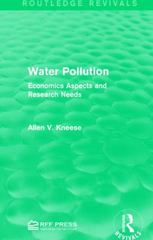Question
22. Time inconsistency refers to a situation where: A.we change our minds about what we want simply because of the timing of the decision. B.we
22. Time inconsistency refers to a situation where:
A.we change our minds about what we want simply because of the timing of the decision.
B.we change our minds about what we want in response to gaining complete information.
C.we typically choose the same thing, regardless of when the decision is being made.
D.None of these statements is true.
23. Installing software to limit screen time, forcing you to uninstall it every time you reach the limit, is an example of:
A.increasing the cost of a vice.
B.behavior that follows the law of demand.
C.can be explained through behavioral economics.
D.All of these are true.
24. Evan knows his GPA would skyrocket if he could break his horrible habit of procrastinating. An example of a commitment device Evan could use would be:
A.to allow himself one hour of leisure for every half-hour of studying he does each day.
B.to remove the TV from his dorm room.
C.to pay a student to meet him each afternoon for 2 hours in the library to ensure he studies every day.
D.All of these are commitment devices.
25. Sunk costs are:
A.costs that have been incurred and cannot be recovered.
B.explicit costs that will incur large implicit costs to recoup or recover.
C.costs that are upfront on a project and should be pulled out if the business fails to thrive.
D.None of these is correct.
26. An example of a sunk cost would be:
A.the value of a lift ticket you bought and used to ski the whole day.
B.the value of a lift ticket you bought and used for 1 run before you fell and broke your ankle.
C.the nonrefundable deposit you put on your vacation rental.
D.All of these are examples of sunk costs.
27. In economics, we assume a rational person will choose to an activity:
A.if the opportunity costs outweigh the benefits of doing so.
B.if the sunk costs outweigh the benefits of doing so.
C.if the sunk and opportunity costs combined outweigh the benefits of doing so.
D.if the opportunity costs do not outweigh the benefits of doing so
28. People consistently consider sunk costs when weighing the trade-offs involved in a decision because:
A.they are rational.
B.they find it hard to accept their losses.
C.they are utility-maximizers.
D.they think at the margin.
29. When shopping for a ticket to see One Direction, her favorite band, in concert, Annie mistakenly purchased a ticket to the off-off-off Broadway play "One Dissection," which she has no interest in seeing. Because the ticket cost her $100, Annie decides to think about it:
A.rationally and skips the play and spends another $100 on the concert ticket.
B.rationally and sits through the play she has the ticket for, which is as awful as she thought it might be.
C.irrationally and skips the play and spends another $100 on the concert ticket.
D.None of these is a possible outcome.
30. Bill attends a local basketball game. The teams are very unbalanced, the play is bad, and the score quickly reaches 36-2. At halftime, Bill realizes he's having no fun, leaves the game, and goes home. Bill's behavior is NOT an example of:
A.ignoring sunk costs.
B.considering sunk costs.
C.rational decision making.
D.None of these is true.
31. Jason spends all afternoon baking a cake. When it comes out of the oven, it's burnt and sunk in the middle, and Jason considers whether he should throw it away or not. If Jason were rational, he would compare the ______________, which is ______________, to the benefits of eating a burnt, sunken cake.
A.sunk cost; the time and ingredients spent making the cake
B.opportunity cost; the value of the time spent and utility from eating or doing something else
C.total cost; the value of the time spent making the cake, the cost of ingredients and value of the time that could be spent doing something other than eating the cake
D.benefit of throwing the cake away; the value of not having to eat burnt cake
32. Carlo has been invited to go skiing for the afternoon with his friends. It will cost $40 for a lift ticket. It is likely Carlo will:
A.overvalue the benefit of skiing.
B.undervalue the opportunity cost of his afternoon.
C.find it difficult to place a value on what he might do instead of skiing.
D.All of these are true.
33. Economists believe that people who force themselves to always eat everything on their plate at a restaurant, regardless of how full they might feel, likely do so because:
A.they must gain negative utility from insulting the chef.
B.they undervalue the opportunity costs of their health and time involved with eating food they don't really want.
C.they ignore the sunk cost involved.
D.they undervalue the true benefit of eating too much
Step by Step Solution
There are 3 Steps involved in it
Step: 1

Get Instant Access to Expert-Tailored Solutions
See step-by-step solutions with expert insights and AI powered tools for academic success
Step: 2

Step: 3

Ace Your Homework with AI
Get the answers you need in no time with our AI-driven, step-by-step assistance
Get Started


